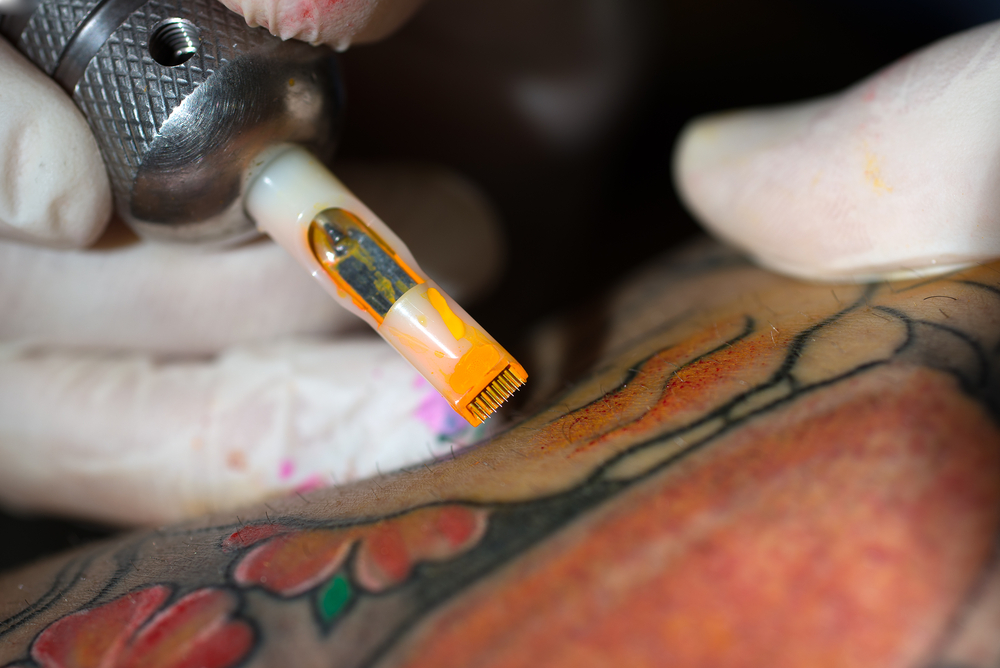Strange Designs: 5 Weird Ways Tattoos Affect Your Health

Get the world’s most fascinating discoveries delivered straight to your inbox.
You are now subscribed
Your newsletter sign-up was successful
Want to add more newsletters?

Delivered Daily
Daily Newsletter
Sign up for the latest discoveries, groundbreaking research and fascinating breakthroughs that impact you and the wider world direct to your inbox.

Once a week
Life's Little Mysteries
Feed your curiosity with an exclusive mystery every week, solved with science and delivered direct to your inbox before it's seen anywhere else.

Once a week
How It Works
Sign up to our free science & technology newsletter for your weekly fix of fascinating articles, quick quizzes, amazing images, and more

Delivered daily
Space.com Newsletter
Breaking space news, the latest updates on rocket launches, skywatching events and more!

Once a month
Watch This Space
Sign up to our monthly entertainment newsletter to keep up with all our coverage of the latest sci-fi and space movies, tv shows, games and books.

Once a week
Night Sky This Week
Discover this week's must-see night sky events, moon phases, and stunning astrophotos. Sign up for our skywatching newsletter and explore the universe with us!
Join the club
Get full access to premium articles, exclusive features and a growing list of member rewards.
A tattoo convention this past weekend in Quito, Ecuador, brought a dizzying array of colorfully tattooed bodies. Not as prominently featured? Some of the weird ways tattoos can affect your health.
Tattoos are very common, but they do bring certain health risks, said Dr. Marie Leger, a dermatologist at the New York University Langone Medical Center in New York City who has studied adverse reactions to tattoos.
"I love tattoos," Leger told Live Science. But it's important to be informed of the risks associated with getting inked, too, she said. [16 Oddest Medical Cases]
Here are some things to keep in mind before getting inked.
Infections
It should come as no surprise that an unsanitary tattoo parlor can lead to infection.
In fact, infections can come from a bunch of different sources, including the tattoo artist, as well as the ink, Leger said.
Get the world’s most fascinating discoveries delivered straight to your inbox.
In 2012, there was a small outbreak of skin infections in upstate New York. The source of the infections was traced back to a batch of grey ink that had been contaminated with bacteria called mycobacteria, Leger said. The bacteria species that caused the infections, Mycobacterium chelonae, can cause painful rashes that can last for months. Itis a relative of the mycobacteria that cause tuberculosis and leprosy.
Although bacterial infections are the most common type of infection linked with tattoos, getting inked can also lead to fungal and viral infections, Leger said. People can even end up with warts, she said.
The takeaway? If a tattoo becomes red, swollen or painful, or starts draining, go see your doctor right away, Leger said.
Allergies
"People can develop allergies to their tattoos," Leger said.
In fact, patients who had no allergic reaction to their first tattoos can later develop an allergy after getting second or third tattoos, she said.
Leger described one patient who had gotten a red tattoo years ago. When the woman got a second tattoo, a decade later, the red portions of both the new and the old tattoos became itchy and (more) red, she said.
Tattoo allergies can be difficult to treat, Leger said. Topical steroids or steroid injections can sometimes help, but in more extreme cases, the tattooed area of skin needs to be surgically cut out of the body, she said.
Hiding the evidence
Covering your skin with tattoos can cover up health problems, preventing them from being caught as early as possible.
There are reports of tattoos covering up skin cancers including melanomas, basal cell carcinomas and squamous cell carcinomas, Leger said.
A 2013 case report described a man whose melanoma was revealed only after he had a tattoo removed with a laser. The cancerous growth had been previously covered in black ink.
Tattoos can make it difficult for a dermatologist to perform a "skin check" and look for moles that may be cancerous, she said. With skin cancer, early detection is important, she added.
Sun exposure
Protecting your skin from the sun is always important, but tattoos can increase your risk of suffering from the effects of too much sun exposure, Leger said.
For some people, sun exposure can cause tattoos to become raised and itchy, she said.
In a Danish study from 2014, researchers interviewed tattooed sunbathers and found that 42 percent reported adverse reactions. Of these complaints, more than half were related to sun exposure, including reports of swelling, itching and redness.
It's well-known that yellow ink can cause itching, redness and raised skin when exposed to the sun; this happens because of the cadmium found in the ink, Leger said. But other colors can cause problems as well.
In the Danish study, for example, skin reactions were observed mostly in people with black, red and blue ink in their tattoos.
MRI-induced burns
People with tattoos may have problems if they need to get MRI (magnetic resonance imaging) exams. For example, a 2011 case report described a professional football player whose black tattoo "burned" while he was getting an MRI.
"That case report was a heads-up" about tattoos and MRIs, Leger said. According to the case report, the burns resulted from electric currents forming in the iron in the tattoo ink.
Patients with more black ink in their tattoos are at greater risk of MRI difficulties, because this ink contains iron oxide, Leger said. However, red inks may also contain iron.
Follow Sara G. Miller on Twitter @SaraGMiller. Follow Live Science @livescience, Facebook & Google+. Originally published on Live Science.

 Live Science Plus
Live Science Plus










